Surah Mauzatain Meaning in English, Arabic Text, And Benefits
Advertisements
Are you looking for the meaning and benefits of surah mauzatain? Worry no more, this post will take a look at the meaning of these Surahs.
What is Surah Mauzatain?
The last two surahs of the Qur’an are referred to as surah Mauzatain (al-Muʽawwidhatan), meaning the two [surahs] seeking refuge. The Muawuwidhatayn refers to Qul audhu bi Rabbil-Falaq (Chapter113) and Qul audhu bi Rabbin-Nas (Chapter 114).
Although they are categorized as Makkan surahs, many commentators mention that they came down in Madinah, citing several hadiths as evidence.
Yet it occurred at times that a surah or ayah which had been previously revealed came down again later in response to a particular occurrence.
Most likely this was the case with these two surahs.
Advertisements
Surah Al Mu’awwidhatayn In Arabic
Surah Al Falaq
بسم الله الرحمن الرحيم
- قُلْ أَعُوذُ بِرَبِّ الْفَلَقِ
- مِن شَرِّ مَا خَلَقَ
- وَمِن شَرِّ غَاسِقٍ إِذَا وَقَبَ
- وَمِن شَرِّ النَّفَّاثَاتِ فِي الْعُقَدِ
- وَمِن شَرِّ حَاسِدٍ إِذَا حَسَدَ
Surah An Nas
بسم الله الرحمن الرحيم
- قُلْ أَعُوذُ بِرَبِّ النَّاسِ
- مَلِكِ النَّاسِ
- إِلَهِ النَّاسِ
- مِن شَرِّ الْوَسْوَاسِ الْخَنَّاسِ
- الَّذِي يُوَسْوِسُ فِي صُدُورِ النَّاسِ
- مِنَ الْجِنَّةِ وَالنَّاسِ
Surah Al Mu’awwidhatayn In English
Surah Al Falaq
- Say, I seek refuge in the Lord of daybreak
- From the evil of what He created
- And from the evil of darkness when it settles
- And from the evil of the blowers in knots
- And from the evil of an envier when he envies.
Surah An Naas
- Say, I seek refuge in the Lord of mankind,
- The Sovereign of mankind
- The God of mankind,
- From the evil of the retreating whisperer
- Who whispers into the breasts of mankind
- From among the jinn and mankind.
The subject matter of this surah mauzatain shows that they came down at Makkah during the time when persecution of the Prophet and his followers was intense.
And subsequently in Madinah, he was instructed to recite them once again, as is mentioned in narrations by several of the Sahabah.
Ibn Masʽud did not include these two surahs in his own hand-written mushaf as he considered them to be supplications rather than part of the Qur’an.
Advertisements
However, none of the other Sahabah agreed with this view and hadiths confirmed that the Prophet himself had recited them in prayer.
Thus, Ibn Katheer was of the opinion that Ibn Masʽud later agreed with the consensus of the Prophet’s companions, so nothing was made of the issue.
Uqbah bin Amir reported that the Messenger of Allah SAW said, Consider some verses sent down this night, the like of which has never been seen.
They are: Say, I seek refuge in the Lord of daybreak and Say, I seek refuge in the Lord of mankind” (i.e., the surahs al-Falaq and an-Nas).
What is The Meaning of Mu Awwidhatayn?
It is an Arabic term referring to the last two suras (chapters) of the Qur’an, viz. Surah Falaq (chapter 113), and Surah Nas (chapter 114). They are two consecutive short prayers both beginning with the verse “Say: I seek refuge in the Lord of…”.
Even though these two chapters are separate entities in the Qur’an and also are written in the Mushaf under separate names, they are deeply related with their contents closely resembling each other’s that they have been designated by the common name ‘al-Mu’awwidhatayn’ (the two suras in which refuge with Allah has been sought.
Mu Awwidhatayn Hadith
There are several hadiths that shows the virtue related to Surah Mauzatain and among them are,
Aishah reported: Whenever the Messenger of Allah SAW went to bed, he would blow upon his hands recite Al-Mu‘awwidhat; and pass his hands over his body.
[Al-Bukhari and Muslim]
Abdullah bin Khubaib reported: The Messenger of Allah SAW said to me, Recite Surat Al-Ikhlas and Al-Mu‘awwidhatain (Surat Al-Falaq and Surat An-Nas) three times at dawn and dusk. It will suffice you in all respects.
[Abu Dawud and At-Tirmidhi]
Mauzatain Benefits
A’ishah reported that when the Prophet SAW went to bed at night he used to blow into his hands after reciting Surah al-Ikhlas, Surah al-Falaq and Surah an-Nas, and then wipe his hands over his head, his face and the front of his body. He would do it three times.
She also said, “Whenever the Messenger of Allah SAW became ill, he would recite al-Muʽawwidhatan and blow over his body.
Then when his pain became severe, I recited them over him and passed his hand over his body in hope of its blessing.
And Abu Saʽeed al-Khudri reported that the Messenger of Allah SAW used to seek protection from the evil eyes of the jinn and mankind.
But after al-Muʽawwidhatan were revealed, he took to them [for protection] and left everything else besides them.
With these two surahs one seeks refuge in Allah from every kind of evil (sharr), and they may be recited for any circumstance in which one fears harm.
They serve to remind the believer to put his trust in Allah and depend upon Him alone.
Surah al-Falaq mentions external evils which threaten mankind, such as what occurs in the darkness of night, the plots of magicians and the harms caused by those who envy and harbor jealousy.
And Surah an-Nas deals with internal evil which is found within the self, such as the suggestions of the Shaytan and corrupt inclinations of the soul.
No one seeks protection with them, with firm faith, except that Allah, Honored and Glorious is He, protects him.
In summary, it is necessary to seekprotection with these two chapters. At-Tirmidhi – may Allah shower blessings on him – mentioned that the Prophet M used to seek protection with Allah from Al-Jann, the Chief Jinn, and from the evil eye of men until ‘Qul audhu bi Rabbil- falaq’ and ‘Qul audhu bi Rabbi-Nasl’ were revealed.’ Thereafter, he began to seek protection using them and abandoned all other things.Allah alone grants success.
These two chapters were revealed to the Prophet when a spell was cast on him by the filthy Labeed bin al-A’sim, the Jew.
So, Allah revealed those two chapters and Jibreel exorcised him with them and Allah freed him from the effect of the spell.
The Prophet said, “You have not sought refuge with anything like them.
Advertisements

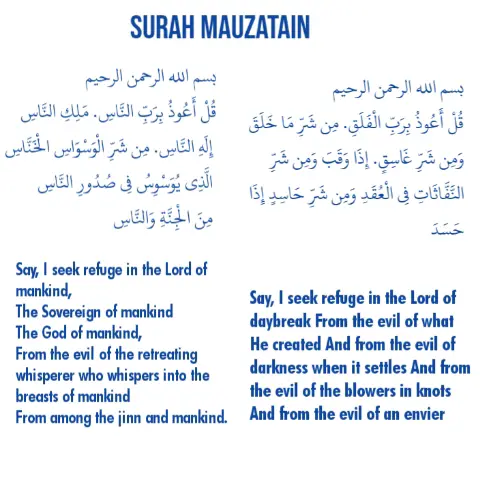
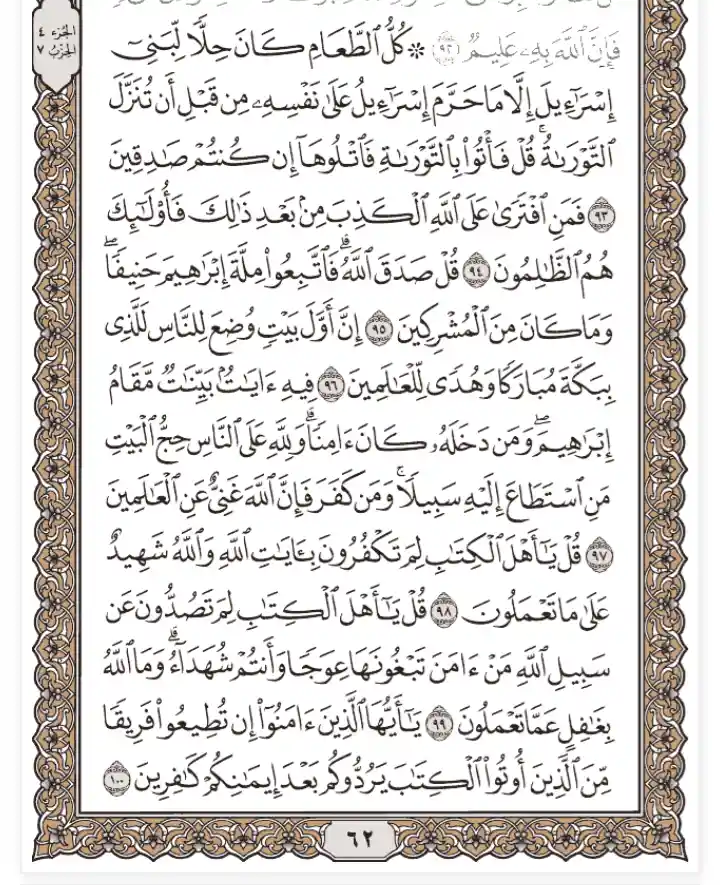
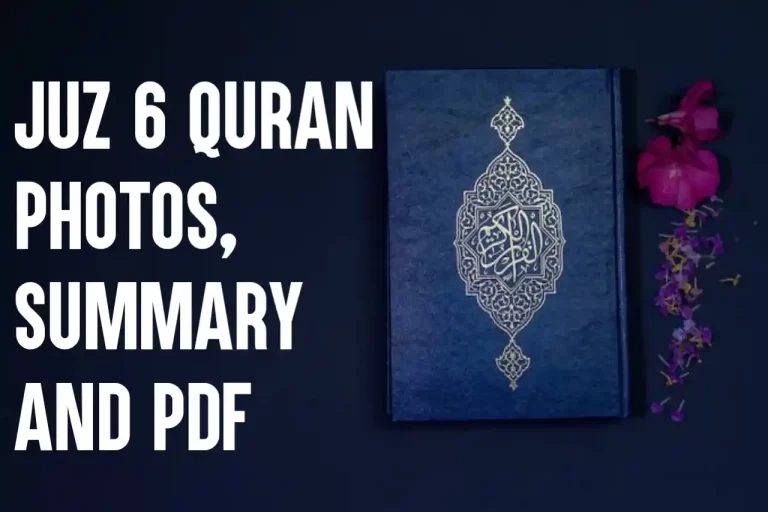
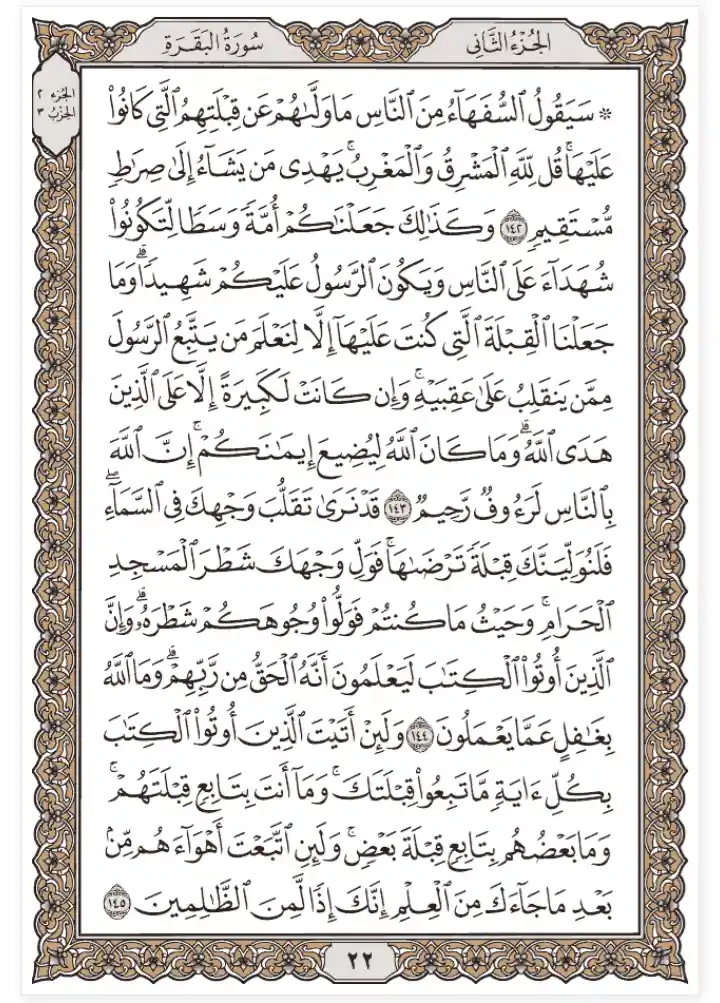


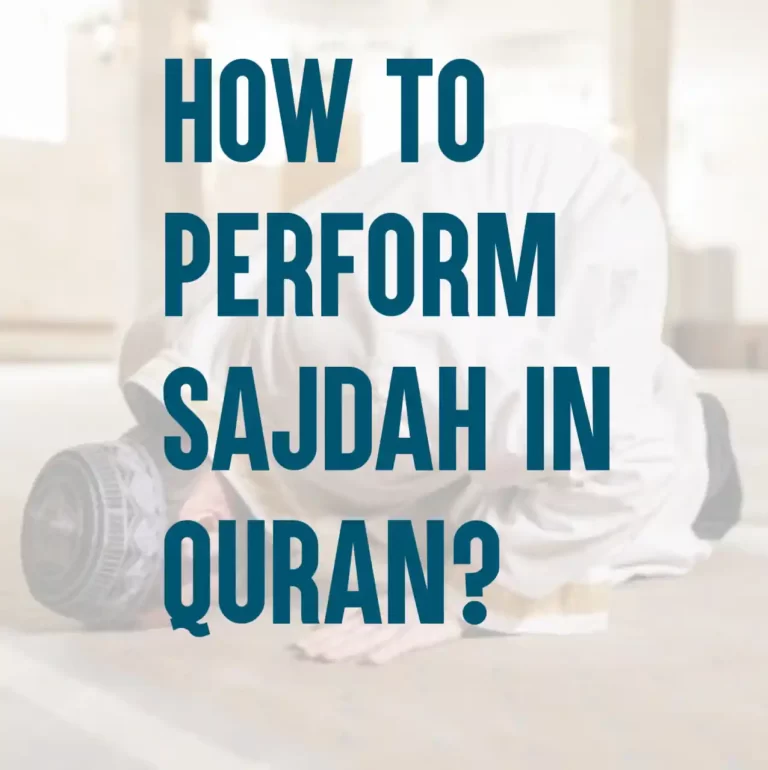
4 Comments